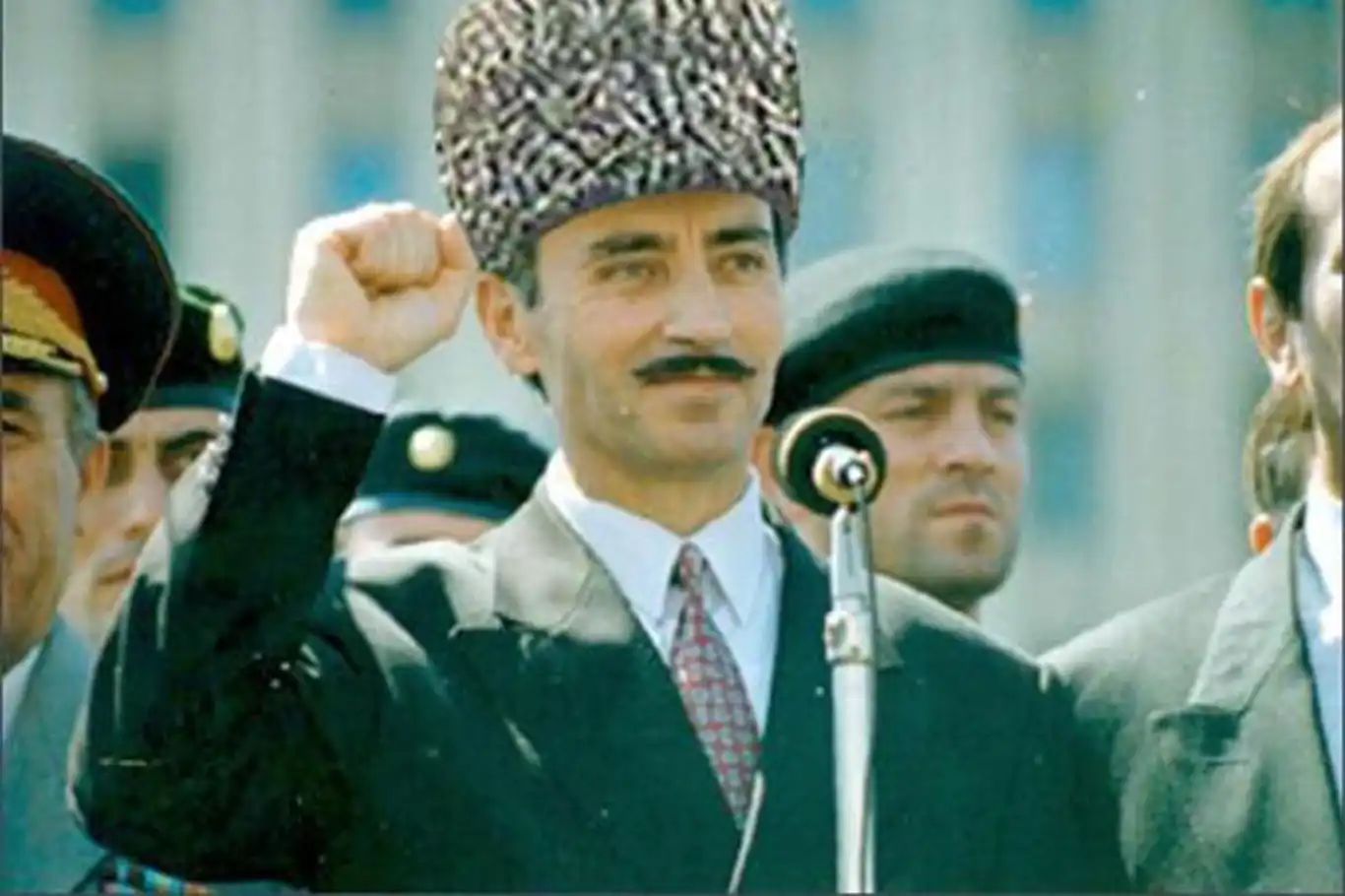Remembering Dzhokhar Dudayev: The 28th anniversary of the passing of Ichkeria’s first president


Today marks the 28th anniversary of the martyrdom of Dzhokhar Dudayev, the first president of the self-proclaimed independent Chechen republic of Ichkeria.
Dudayev was killed by a Russian guided missile strike near the village of Gekhi-Chu while he was reportedly discussing possible peace talks with a prospective Russian mediator via a satellite phone.
Dudayev served as the first president of the Chechen Republic of Ichkeria, a nation determined to reclaim its independence after centuries of Russian rule. His legacy is one of unwavering resistance and a fierce love for his homeland.
Born in 1944, Dudayev's life began amidst the brutality of Soviet repression. His family, like countless other Chechens, endured forced deportation to Kazakhstan under Stalin. Upon returning to their homeland in 1957, Dudayev defied adversity, rising through the ranks of the Soviet Air Force to become the first Chechen general. However, his service couldn't erase the yearning for Chechnya's autonomy.
With the Soviet Union's dissolution in the late 1980s, Dudayev emerged as a powerful voice for Chechen independence. He resigned his commission and returned home, becoming a central figure in the burgeoning independence movement. In a democratic referendum, the Chechen people overwhelmingly elected Dudayev as President of the newly established Chechen Republic of Ichkeria. His subsequent declaration of independence on November 1st, 1991, marked a defiant act of self-determination against a powerful oppressor.
The First Chechen War (1994-1996) became a testament to Chechen resilience. Despite facing a vastly superior Russian military, Dudayev, a charismatic and inspiring leader, rallied his people in a valiant defense of their homeland. The Chechen fighters, fueled by a deep love for their nation, inflicted heavy losses on the Russian forces, exposing their weaknesses on the world stage. While Dudayev's leadership style wasn't without criticism, his unwavering commitment to Chechnya's freedom remains an inspiration.
Dudayev's assassination in 1996 was a tragic blow to the Chechen cause, but his spirit lives on. The war continued for another decade, leaving Chechnya scarred, but the Chechen people's desire for independence never wavered. Dudayev is revered as a national hero, a symbol of resistance against oppression.
Today, on the anniversary of Dudayev's passing, Chechens from all walks of life gather to honor his memory and pay tribute to his remarkable contributions to their nation's history. From solemn memorial services to cultural events celebrating Chechen heritage, the day is marked by a profound sense of reverence and reflection.
As Chechnya continues its journey forward, the spirit of Dzhokhar Dudayev serves as a guiding beacon, inspiring future generations to uphold the ideals of justice, freedom, and self-determination. Though he may no longer walk among us, Dudayev's legacy lives on in the hearts of all who cherish the dream of a free and sovereign Chechen nation. (ILKHA)
LEGAL WARNING: All rights of the published news, photos and videos are reserved by İlke Haber Ajansı Basın Yayın San. Trade A.Ş. Under no circumstances can all or part of the news, photos and videos be used without a written contract or subscription.
It has been thirty-two years since the village of Başbağlar, nestled in the mountainous region of Erzincan, Türkiye, was thrown into the depths of unimaginable horror.
As the world marks the 100th anniversary of the execution of Sheikh Said of Palu and his 47 companions, Muslims across the globe are gathering to honor a defining moment in Islamic resistance history.
The Hijrah—the historic migration of Prophet Muhammad (peace be upon him) from Mecca to Madinah in 622 CE—stands as a luminous milestone in Islamic history, igniting the flame of hope in the hearts of early Muslims and serving as an enduring example for all generations of believers.
Türkiye today marks the 63rd anniversary of the May 27, 1960 military coup—a day many regard as a deep betrayal of democracy, justice, and the national will.